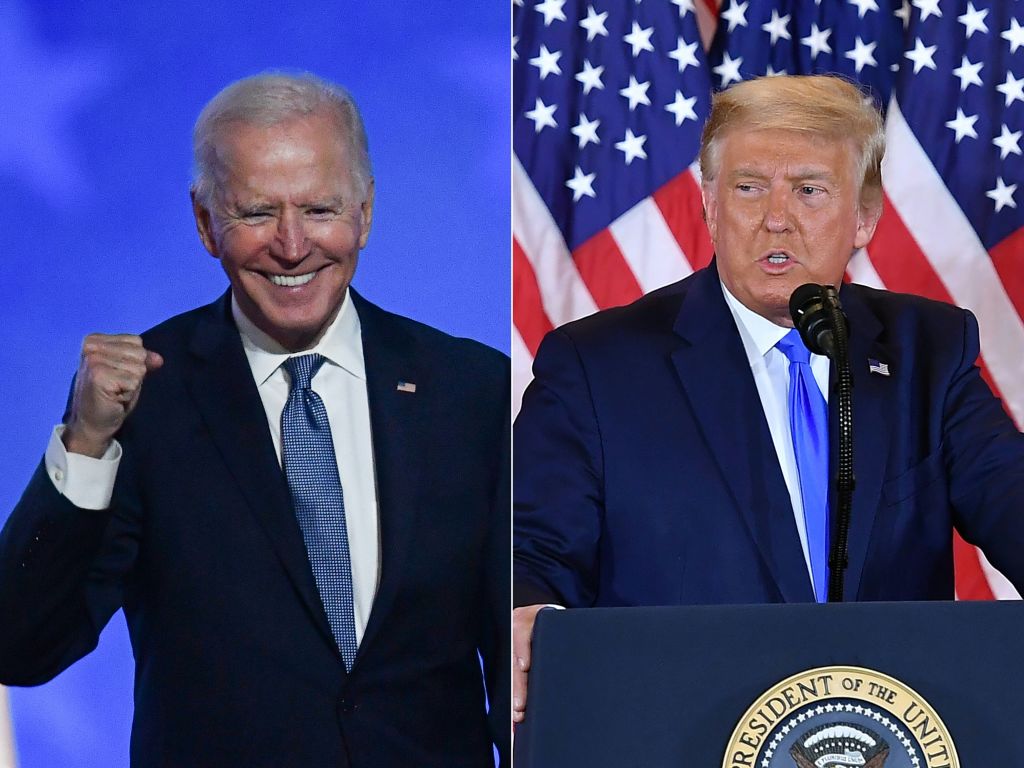2020 polls badly understated support for GOP candidates, review finds, and nobody's sure why


A free daily email with the biggest news stories of the day – and the best features from TheWeek.com
You are now subscribed
Your newsletter sign-up was successful
The 2020 polls were off by an "unusual magnitude," missing the national results by the biggest margin in 40 years and erring in state surveys by the greatest amount in at least 20 years, according to a new study released Monday by the American Association for Public Opinion Research (AAPOR).
"There was a systematic error that was found in terms of the overstatement for Democratic support across the board," said Vanderbilt University political scientist Josh Clinton, chair of the 19-member task force. "It didn't matter what type of poll you were doing, whether you're interviewing by phone or internet or whatever. And it didn't matter what type of race, whether President Trump was on the ballot or was not on the ballot."
The task force reviewed 2,858 presidential polls and found they were off by 3.9 percentage points nationally and 4.3 percent at the state level. The numbers for President Biden were fairly accurate, about a point higher than his final vote count, but Trump's "support was understated by a whopping 3.3 points on average," Politico reports. "The polls of Senate and governor's races were off by an even greater margin: 6 points on average."
The Week
Escape your echo chamber. Get the facts behind the news, plus analysis from multiple perspectives.

Sign up for The Week's Free Newsletters
From our morning news briefing to a weekly Good News Newsletter, get the best of The Week delivered directly to your inbox.
From our morning news briefing to a weekly Good News Newsletter, get the best of The Week delivered directly to your inbox.
All 66 national polls conducted in the last two weeks accurately predicted that Biden would win, the report found, but only 66 percent of Senate polls correctly forecast the winner.
The task force determined that pollsters had largely corrected the errors from the 2016 polling, including under-sampling voters with no college degree. "It's hard to prove beyond a certainty what happened," Clinton said, but "we have some good prime suspects as to what may be going on."
Probably the likeliest theory is that pro-Trump Republicans specifically refused to talk to pollsters, while "self-identified Republicans who choose to respond to polls are more likely to support Democrats," the report posited, skewing the sample of GOP voters.
The task force ruled out a sizable "shy Trump voter" effect and found that the predicted composition of the electorate was largely accurate. "Identifying conclusively why polls overstated the Democratic-Republican margin relative to the certified vote appears to be impossible with the available data," the report found. That leaves pollsters with little guidance for 2022 and 2024. "We'll have to wait and see what happens — which isn't a particularly reassuring position," Clinton said. "But I think that's the honest answer." You can read the full report at AAPOR.
A free daily email with the biggest news stories of the day – and the best features from TheWeek.com
Peter has worked as a news and culture writer and editor at The Week since the site's launch in 2008. He covers politics, world affairs, religion and cultural currents. His journalism career began as a copy editor at a financial newswire and has included editorial positions at The New York Times Magazine, Facts on File, and Oregon State University.
